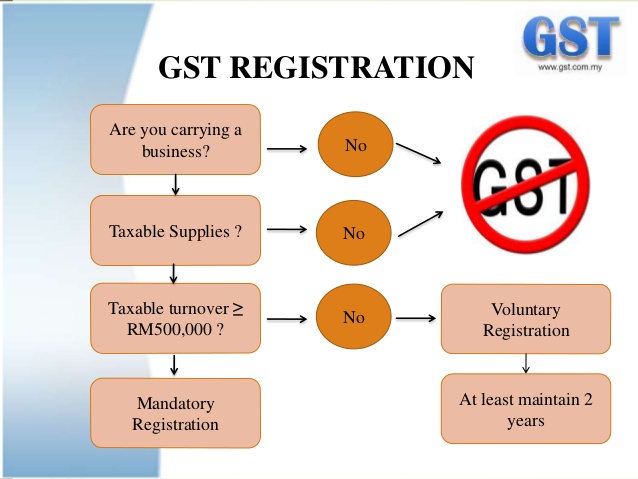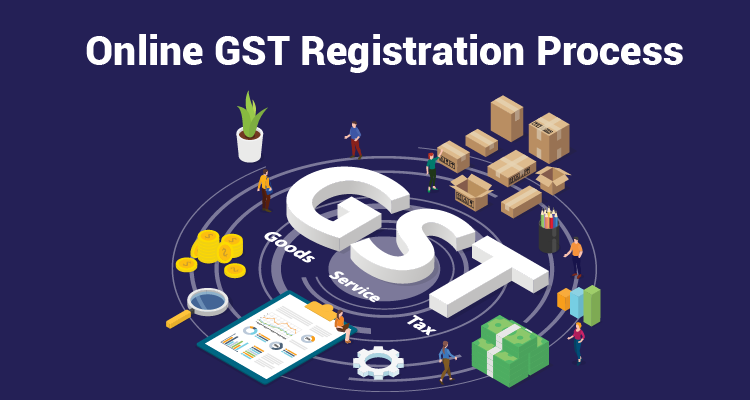How to Navigate Singapore GST Registration for Your Company
How to Navigate Singapore GST Registration for Your Company
Blog Article
Maximizing Tax Obligation Performance: Specialist Tips on Browsing the GST Enrollment Maze for Local Business
Browsing the elaborate landscape of Goods and Services Tax (GST) registration can be a labyrinthine task for tiny companies intending to maximize their tax obligation performance. In this discussion, we will check out expert understandings and actionable recommendations that can empower little businesses to navigate the GST enrollment maze properly and maximize their tax performance.
Eligibility Standards
Qualification demands for Small Organization GST Enrollment encompass details requirements that companies have to meet to abide by tax regulations. To get GST registration, a service has to have a yearly turn over surpassing the threshold established by the tax authorities, which differs by nation. Furthermore, organizations entailed in inter-state supply of items or solutions, or those marketing goods online, may be called for to register for GST, irrespective of their turn over. It is essential for services to accurately identify their qualification based upon these turn over thresholds to avoid fines for non-compliance. Singapore GST Registration.

Documentation Demands
To effectively complete the process of GST enrollment, little businesses need to guarantee they have all required documentation in order. The required documents usually consists of evidence of service enrollment or address, incorporation and identity evidence of business proprietor, photographs, savings account details, and proof of the primary area of organization. Furthermore, businesses require to offer information of their organization tasks, including the products or solutions provided. It is important to make certain that all files are exact, approximately day, and in the defined layout to avoid hold-ups or rejections during the enrollment process.
Aside from the required records, services may also be required to send added information based upon their details situations. This might consist of records associated with partnerships, the consent of notaries, or any type of various other appropriate agreements. Maintaining all necessary paperwork organized and easily accessible can simplify the registration process and help companies comply with the requirements successfully - Singapore GST Registration. Failing to supply the needed paperwork might cause hold-ups or perhaps denial of the GST enrollment application. Meticulous interest to detail and adherence to the documentation guidelines are essential for a successful GST registration procedure for little services.
Timing Considerations
Considering the necessary documents requirements have been carefully attended to, the following essential facet for local business starting the GST registration process is the strategic monitoring of timing considerations. Timing plays an essential duty in GST enrollment, affecting not only compliance but also financial elements of the organization. Local business need to thoroughly prepare the timing of their GST registration to make best use of advantages and minimize potential dangers.

Moreover, services must align the timing of their GST enrollment with their functional preparedness. Appropriate preparation, such as upgrading audit systems and training team, is important to seamlessly incorporate GST demands into daily procedures. By purposefully handling timing factors to consider, tiny businesses can right here navigate the GST registration process successfully and maximize their tax obligation performance.
Enrollment Refine Tips
Successfully navigating the GST registration procedure calls for small companies to carry out calculated and proactive registration procedure pointers. One critical idea is to make sure all needed records are conveniently offered prior to starting the enrollment process. This includes service registration papers, proof of address, bank statements, and recognition proofs of business proprietors. Confirming the accuracy of the details provided is just as crucial to stop beings rejected or hold-ups.
In addition, recognizing the limits and needs for GST enrollment based upon the certain state or region where the service runs is vital. Some states have various turnover thresholds that trigger required enrollment, so being educated about these thresholds can assist services plan ahead.
One more beneficial pointer is to consider looking for professional aid from accountants or tax consultants who focus on GST enrollment. Their knowledge can simplify the procedure, lower mistakes, and guarantee compliance with all laws.
Conformity Ideal Practices
Navigating the GST enrollment process efficiently necessitates not only calculated enrollment procedure pointers yet likewise diligent adherence to compliance finest practices to make certain recurring governing placement. Local useful link business need to prioritize conformity to avoid charges and keep a great standing with tax authorities. One critical finest method is to maintain in-depth and exact documents of all deals. This includes invoices, receipts, and various other economic files that may be required for tax obligation audits or compliance checks. In addition, staying notified concerning any type of adjustments or updates to GST laws is essential. If required to guarantee they are satisfying all requirements, tiny company proprietors ought to routinely review government guidelines and look for expert guidance. Singapore GST Registration. It is likewise advised to submit GST returns in a timely manner to prevent late costs and fines. By incorporating these conformity finest techniques into their procedures, local business can navigate the intricacies of GST enrollment with confidence and effectiveness.
Conclusion
Finally, little services can navigate the GST enrollment puzzle by guaranteeing they fulfill eligibility requirements, gather called for paperwork, think about timing ramifications, follow enrollment procedure pointers, and follow compliance ideal methods. By maximizing tax obligation effectiveness via correct GST registration, organizations can improve their economic administration and operations.
Navigating the elaborate landscape of Goods and Services Tax (GST) registration can be a labyrinthine task for little organizations aiming to a fantastic read optimize their tax effectiveness.Eligibility requirements for Small Company GST Enrollment incorporate specific standards that companies should satisfy to abide with tax obligation policies. The needed paperwork commonly includes proof of company enrollment or identity, incorporation and address evidence of the company owner, photos, financial institution account details, and evidence of the primary location of service. Furthermore, organizations need to supply details of their company activities, including the goods or solutions supplied.Efficiently navigating the GST enrollment procedure calls for small services to execute proactive and calculated enrollment procedure pointers.
Report this page